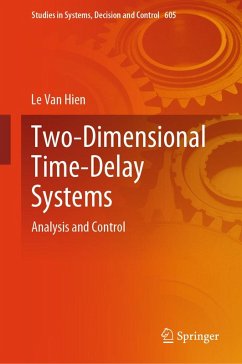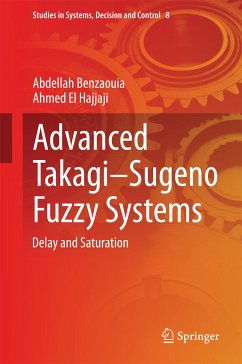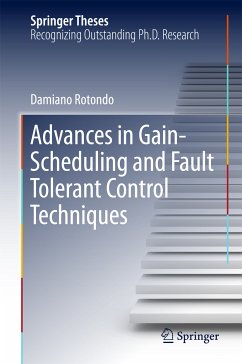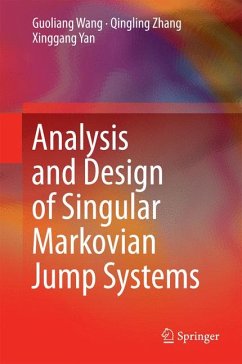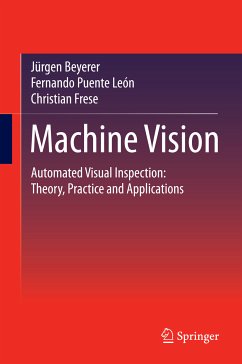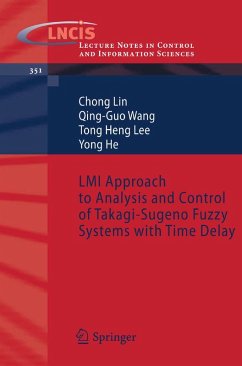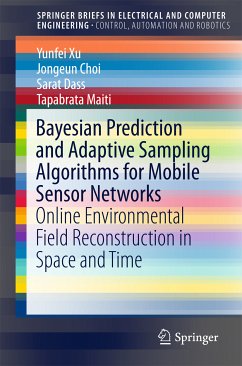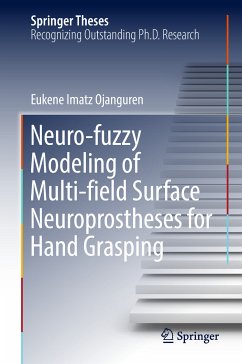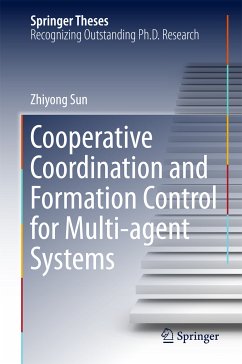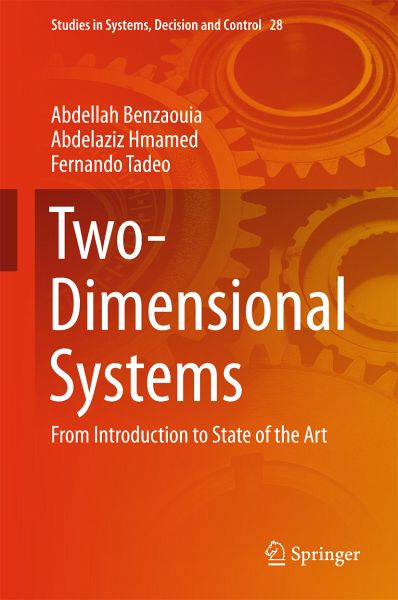
Two-Dimensional Systems (eBook, PDF)
From Introduction to State of the Art
Versandkostenfrei!
Sofort per Download lieferbar
72,95 €
inkl. MwSt.
Weitere Ausgaben:

PAYBACK Punkte
36 °P sammeln!
A solution permitting the stabilization of 2-dimensional (2-D) continuous-time saturated system under state feedback control is presented in this book. The problems of delay and saturation are treated at the same time. The authors obtain novel results on continuous 2-D systems using the unidirectional Lyapunov function. The control synthesis and the saturation and delay conditions are presented as linear matrix inequalities. Illustrative examples are worked through to show the effectiveness of the approach and many comparisons are made with existing results.The second half of the book moves on...
A solution permitting the stabilization of 2-dimensional (2-D) continuous-time saturated system under state feedback control is presented in this book. The problems of delay and saturation are treated at the same time. The authors obtain novel results on continuous 2-D systems using the unidirectional Lyapunov function. The control synthesis and the saturation and delay conditions are presented as linear matrix inequalities. Illustrative examples are worked through to show the effectiveness of the approach and many comparisons are made with existing results.
The second half of the book moves on to consider robust stabilization and filtering of 2-D systems with particular consideration being given to 2-D fuzzy systems. Solutions for the filter-design problems are demonstrated by computer simulation. The text builds up to the development of state feedback control for 2-D Takagi-Sugeno systems with stochastic perturbation. Conservatism is reduced by using slack matrices and the coupling between the Lyapunov matrix and the system matrices is broken by using basis-dependent Lyapunov functions. Mean-square asymptotic stability and prescribed H-infinity performance are guaranteed.
Two-Dimensional Systems emphasizes practical approaches to control and filter design under constraints that appear in real problems and uses off-the-shelf software to achieve its results. Researchers interested in control and filter design for multidimensional systems, especially multi-dimensional fuzzy systems, will find this book a useful resource as will graduate students specializing in dynamical sytems.
The second half of the book moves on to consider robust stabilization and filtering of 2-D systems with particular consideration being given to 2-D fuzzy systems. Solutions for the filter-design problems are demonstrated by computer simulation. The text builds up to the development of state feedback control for 2-D Takagi-Sugeno systems with stochastic perturbation. Conservatism is reduced by using slack matrices and the coupling between the Lyapunov matrix and the system matrices is broken by using basis-dependent Lyapunov functions. Mean-square asymptotic stability and prescribed H-infinity performance are guaranteed.
Two-Dimensional Systems emphasizes practical approaches to control and filter design under constraints that appear in real problems and uses off-the-shelf software to achieve its results. Researchers interested in control and filter design for multidimensional systems, especially multi-dimensional fuzzy systems, will find this book a useful resource as will graduate students specializing in dynamical sytems.
Dieser Download kann aus rechtlichen Gründen nur mit Rechnungsadresse in A, B, BG, CY, CZ, D, DK, EW, E, FIN, F, GR, HR, H, IRL, I, LT, L, LR, M, NL, PL, P, R, S, SLO, SK ausgeliefert werden.




